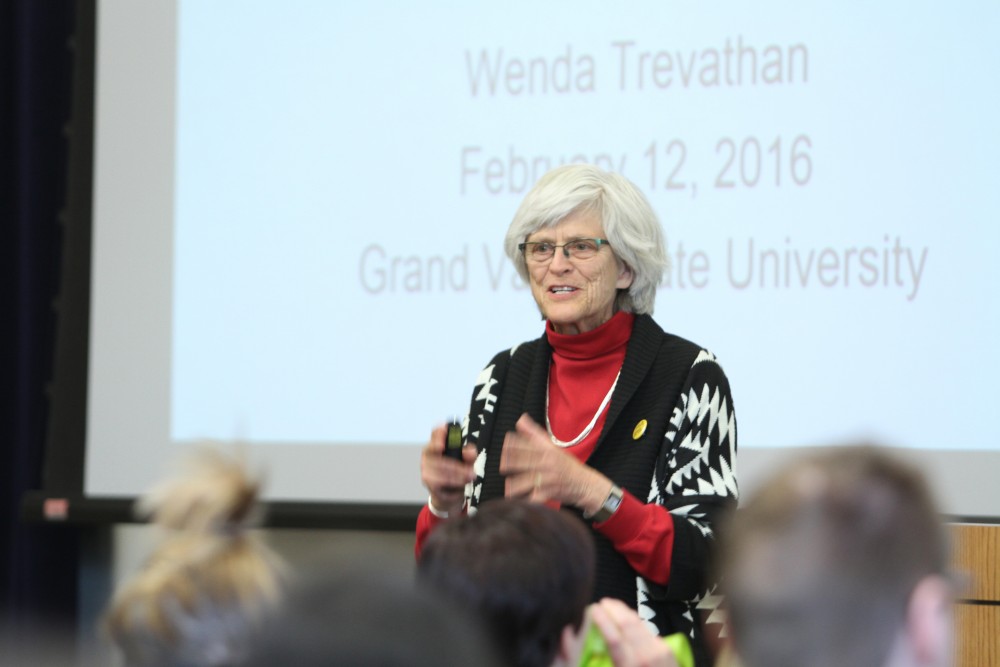GV celebrates first Darwin Day

GVL / Kasey Garvelink – Dr. Wenda Trevathan from New Mexico State University was one of the keynote speakers to start off the events of Darwin day on Feb. 12, 2016 in Allendale, MI.
Feb 15, 2016
In celebration of Grand Valley State University’s very first Darwin Day, award-winning biological anthropologist Wenda Trevathan visited campus to give the community a lecture about how medicine and evolution are related.
Darwin Day at GVSU was held on Feb. 11 and 12 and included events that promoted intellectual curiosity, education and wellbeing.
“(Darwin Day) is about encouraging education and questioning things you know,” said Cara Ocobock, assistant professor at GVSU. “In my mind, it’s trying to reach out to people and help them look at things in a different way with more of a critical eye.”
In her keynote address on Feb. 12, Trevathan focused the application of principles of evolutionary theory to medical practice and research, called Darwinian medicine.
Within the theme of Darwinian medicine, Trevathan discussed the mismatch theory, which proposes that the adaptations human ancestors picked up long ago fail to match with the environment today.
Trevathan related the theory to the ways in which pregnant women deal with anxiety and pain. Instead of dealing with pain through the comfort of others as humans would before modern medicine, Trevathan said pregnant women today are becoming increasingly reliant on drugs and medication to relieve their pain.
“I wondered if there was some benefit to anxiety and pain,” Trevathan said. “What I concluded was that anxiety and discomfort in birth leads people to seek comfort from others. When we’re in pain, we turn to other people.”
With the exception of serious cases that could lead to health complications or even death, Trevathan said the solution to combating anxiety and pain proposed by evolutionary medicine is to provide emotional support for women giving birth.
Evolutionary medicine also asserts that individuals find alternative solutions to nausea and sleeping issues similar to those of our ancestors, unless it’s a life-threatening situation.
And when it comes to Caesarean sections, evolutionary medicine encourages pregnant women to avoid the surgery if not absolutely needed.
According to research presented by Trevathan, C-sections lead to a 20 percent increase in risk for Type 1 diabetes as well as increased respiratory morbidity, among other issues.
“When it’s an elective C-section, there seems to be more things at risk than there are to be gained,” Trevathan said.
Trevathan said the mismatch theory also provides an explanation for the unusually large amount of people today being diagnosed with diabetes, obesity, and various food intolerances.
“The problem we have today is we have this legacy for the craving of high fat, yet we sit here at this lecture for an hour or so and whatever we ate for lunch goes straight to middle (of the body),” she said. “There’s an incompatibility when we eat these high-fat foods but have low activity levels. This leads to health consequences.”
Trevathan added that it’s important for the natural processes in people’s bodies to take their course even though modern busy lives usually don’t allow it.
In concluding her speech, she reminded the audience that nothing in biology or medicine can make any sense without evolution.

























